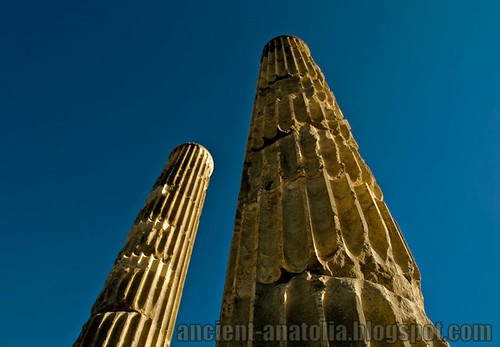
Letoon, originally uploaded by voyageAnatolia.blogspot.com.
Photo: Ionic column capital at Letoon.
The sanctuary of Leto called the Letoon, sometimes Latinized as Letoum, near Xanthos, was one of the most important religious centers of the Lycian region in Anatolia. In Greek mythology Leto is daughter of the Titans Coeus and Phoebe. In the Olympian scheme of things, Zeus is the father of her twins, Apollo and Artemis. The foundations of the Hellenistic temple dedicated to Leto, and her children, Artemis and Apollo. The site is located between the towns of Kaş and Fethiye in Antalya province of Turkey, approximately four km south of Xanthos along the Xanthos River. Xanthos and Letoon are UNESCO World Heritage Centres.
